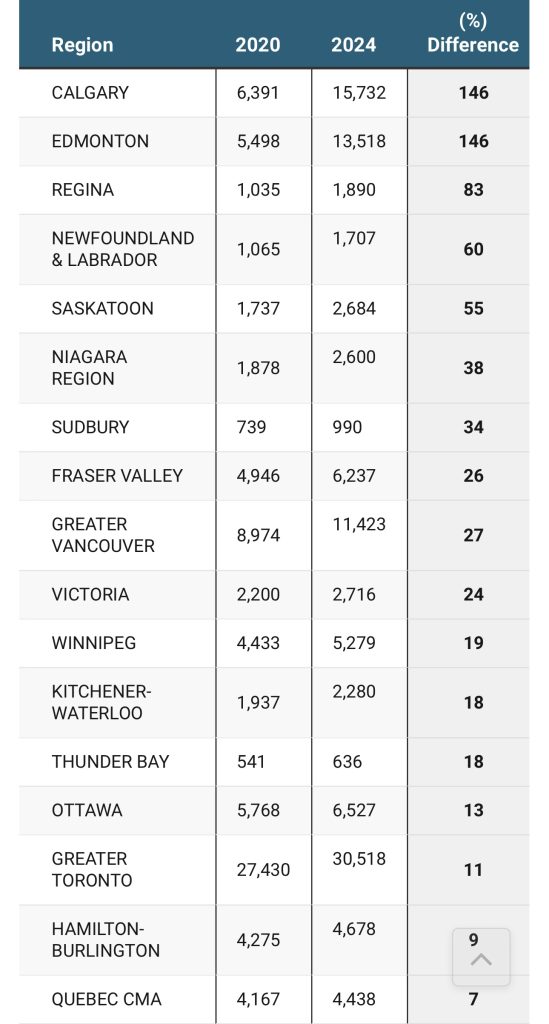Since the start of 2024, Ottawa has seen a drop in housing starts year-over-year, including single-detached homes and apartments.
The city released an Economic Development Update, giving an overview of quarterly and annual indicators to the health of the economy, which covers the months of January, February and March.
Housing starts are a measure of the number of privately owned new houses for which construction has begun.
According to the City of Ottawa, there was a 33.6 per cent decrease in housing starts, year-over-year, from 1,626 to 1,080 housing starts.
More specifically, single detached starts are down 31.9 per cent and apartment starts have fallen by 44.4 per cent.
This means less housing is starting to be built in the nation’s capital and will force more competition for homes on the market for those types.
Rowhouse starts increased by 56.2 per cent and semi-detached new builds went up by 133.3 per cent — showing the municipality’s desire for intensification.
Despite the lagging construction in some types of homes, a report from the Ottawa Real Estate Board (OREB) shows sales rose 5.2 per cent on a year-to-date basis over the first five months of 2024.
This is a part of a larger trend in home sale prices in the nation’s capital.
Zoocasa, an online real estate website, found from 2020 to 2024 Ottawa housing sales went up by 13 per cent — from 5,768 in 2020 to 6,527 in 2024.
But this jump in home sales is relatively minimal, compared with other cities like Calgary and Edmonton, the report notes.

MLS Sales in Canadian Cities: A Comparison from 2020 to 2024. (Table by Zoocasa.)
Further trends mentioned in Ottawa’s Economic Development update includes housing resale value.
The average housing resale price increased 2 per cent from the previous quarter, while it increased 4.5 per cent year-over-year, wrote the City of Ottawa.
Based on the Economic Development Update Q1 2024, the City of Ottawa also saw:
- The office vacancy rate decreased 0.3 percentage point from Q1 2023 to reach 12.0 percent.
- The industrial vacancy rate increased 0.1 percentage points from Q1 2023 to reach 3.0 percent.
- The inflation rate decreased 0.7 percentage points from the previous quarter and 3.4 percentage points year-over-year to hit 2.0 percent in Q1 2024.
- The number of employed residents increased by 4.5 percent from Q1 2023 despite the unemployment rate having increased by 0.7 percentage points.